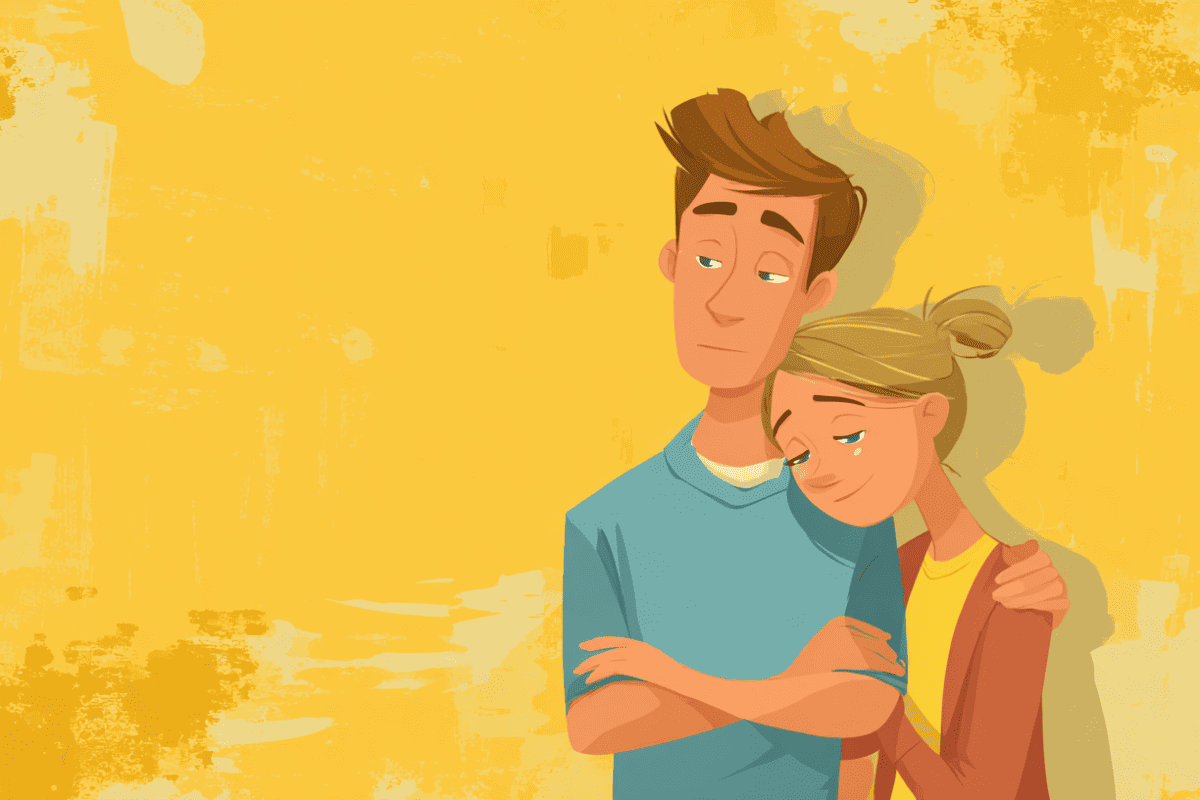The quick answer? Blue light! And the way it interferes with our melatonin production. Let’s jump into it in a bit more detail…
What is Blue Light?
Blue light is an invisible form of energy. It’s a part of the visible light spectrum and can have unique effects on our alertness, hormone production and sleep cycles. Nothing is inherently wrong with blue light, apart from when we consume too much of it. Nowadays, it’s difficult to avoid blue light consumption as there’s a substantial amount of blue light emitted from our screens.
With tech consumption and screen time only increasing, we’re consuming more blue light now than ever before.
Studies have shown that blue light interferes with our sleep, inhibiting falling asleep and impacting the depth of our sleep at different sleep stages. Studies have also shown that too much exposure to blue light can cause eyestrain, fatigue and headaches. The long-term effects of our modern-day blue light consumption has not yet been tested as our screen time has only really increased in our recent history.
The COVID-19 pandemic only seems to have increased screen time for many of us working from home, with limited entertainment options outside of screens.
We know that blue light interferes with our sleep, and this is because of the way it impacts our melatonin production.
What is melatonin?
Melatonin is our natural sleepy hormone! Our brains produce and release melatonin when outside factors tell the body it’s time to sleep.
When it is dark outside and the sun is setting, so long as we don’t have any artificial lights interfering, the brain and pineal gland produces and releases our sleepy hormone melatonin, causing us to feel tired and preparing the body for sleep.
When the sun rises, melatonin production decreases, helping the body wake up.
This wake-sleep cycle used to rely heavily on melatonin. Before we had electricity, we would naturally fall asleep with the sunset and naturally awake with the sunrise. If we think about the term ‘midnight’ it literally means the middle of the night, because it used to be the middle of our nights! These days, many of us don’t get to sleep until after what the English language refers to as the middle of the night. Melatonin fundamentally helps the healthy onset of our sleep.
While melatonin is a naturally released hormone, we can consume melatonin as a supplement and in certain foods.
Melatonin as a supplement
There are many companies producing and selling melatonin supplements. According to neuroscientist and sleep expert Matthew Walker, melatonin supplements can vary in dosage comparable to what the dosage states on the bottle. Products were found to have up to 80% less melatonin than the stated dosage and were found to have up to 460% more melatonin than stated on the bottle. Even with the same supplier, there is variability from one batch to the next, so it’s worth being mindful of this when shopping for supplements.
Studies looking into the efficacy of melatonin supplementation for better sleep found that the results were somewhat equivocal. Matthew Walker advises in a podcast with Joe Rogan to take melatonin if we are struggling to sleep while jet lagged, as it can encourage the body back into its natural wake-sleep cycle. Outside of this example, Matthew suggests that the power of placebo is valid and strong. If you take melatonin to sleep and your sleep improves significantly after taking a melatonin supplement, it could very well be a placebo effect, in which case, Matthew advises to continue taking it!
The recommended melatonin dosage to help us initiate sleep is between 0.5mg-2mg. It’s worth keeping these numbers in mind, especially given the disparity between what’s in many products vs what is said to be inside many products.
In the UK, melatonin is a prescribed sleep drug and as such, you’re less likely to find such wide disparities between dosage and stated dosage as these drugs are much more closely regulated than over the counter medications.
You need to take melatonin supplements about 1-2 hours before you plan to sleep. This is the same amount of time we should have without screens or artificial light before bed in order for melatonin to be naturally produced and released.
Sometimes, limiting our screen time before bed is simply not possible. While this is the preferable course of action when it comes to improving the rate at which we fall asleep, we can always use melatonin supplements as a backup plan, unless…
Melatonin in food
We can eat our melatonin! Here are some foods to keep in mind for dinner inspiration, as they are high in melatonin, helping the body naturally feel sleepy…
- Milk: If you’re a dairy consumer, a warm glass of milk before bed could be your go-to! Milk is high in melatonin. If you can, try to purchase organic milk, ensuring the manufacturers do not feed their cows growth hormones, a practice that is still popular in the USA.
- Fish: Packed with melatonin, fish also provides valuable omega-3 fatty acids, helping us feel sleepy and look after our health.
- Eggs: Highly nutritious and one of the best sources of melatonin, eggs are a great dinner option to encourage the body into a sleepy state.
- Nuts: In particular, pistachios and almonds are a great source of melatonin, with most nuts having a good amount of melatonin.
- Cherries: While they are quite sweet, research has found that consuming cherries increases melatonin levels in the body, enhancing sleep.
- Goji Berries: Another fruit high in melatonin that may help to improve sleep.
It’s worth keeping in mind that the food we eat can encourage sleep, but it can also have the opposite effect. A good general rule of thumb when it comes to eating for sleep is to stop eating at least 3 hours before bedtime. This gives your body time to use up all the leftover energy, and get through the first stages of digestion.
Developing a Healthy Screen/Sleep Relationship
Blue light isn’t the only thing keeping us up while we’re staring at the screen, scrolling in bed. The content of what we are looking at can also be keeping us up.
Many of us, especially during COVID times, are bringing our work into the bedroom. Finishing off last-day emails, getting ahead of the next workday, wrapping up a work project, we’re at home with not much else to do other than work.
A lot of us have very stressful jobs, and no matter whether the work that you’re doing on your laptop in bed late at night is causing you instant stress, it certainly won’t be as helpful for your sleep as ‘switching off’ from work by doing something like reading a book, or listening to a podcast.
It’s also safe to assume that for many of you reading this, your to-do list doesn’t actually have an end. One ‘last work email’ turns into 3 turns into 10 turns into 3 hours later and you’re so awake that you figure you’ll just work until you’re tired…
But the problem is, you’re not going to get tired. Because your screen is emitting blue light that’s keeping you up. AND working this late is reminding you of the fire you have to put out tomorrow which is causing you stress, making it more difficult to sleep.
Even for those of us who don’t work in bed, but rather, are scrolling through Instagram late at night, the content that we’re consuming could be what’s keeping us up. Seeing shiny content on an endless scroll of perfectionism can cause the person scrolling stress, as they compare themselves to others online just before they’re supposed to fall soundly asleep.
It’s difficult to do, but reducing our screen time before bed can work brilliantly in getting us to sleep faster and helping improve our sleep quality. As a symptom of reducing screen time before bed, we’re also giving ourselves space to decrease stress, which in turn, could help to improve our sleep.
Reducing Screen Time before Bed
When it comes to adapting our sleep routine, it’s a good idea to start small. Instead of banishing your phone, tv, laptop and artificial lights 4 hours before sleep, start with one screen.
You have work emails you need to finish sending before you go to sleep? No problem! Finish them up in a different room, and do not bring your laptop to bed. Once this becomes a habit, we can start to introduce a new improvement to the sleep routine.
Whatever you decide to change in your sleep routine, you need to be ready to implement it for it to become a habit. Keeping your phone in another room while you sleep to avoid scrolling temptation? What will you use for an alarm instead of your phone? Make sure you have everything you need to be able to implement your chosen sleep routine changes.
Sleep Hack!
I’ll leave you with a sleep hack that will be sure to get you yawning: Pick one night this week where you leave the lights off all evening. When the sun starts to set, keep the lights off and dim the light on your device screens. You can be watching TV, playing on your phone or laptop, working, anything that you usually do, but with all the lights in your space OFF or heavily dimmed. I promise you, you’ll feel sleepier than usual. This exercise will really help to illustrate the power of the natural production of melatonin and the power it has to improve our sleep.
Until next time, from Somnus Therapy, sleep well and sweet dreams!
This post has been sponsored by Somnus Therapy
Gabie Lazareff
Gabie Lazareff is a certified health coach, yoga teacher and freelance nutrition & wellness writer. She’s on a mission to spread the word about the importance of sleep in order for us not just to survive, but to thrive.



2 comments
SNK Social Fame
May 24, 2022 at 1:20 pm
I really enjoyed reading your article. I found this as an informative and interesting post. Thanks for sharing us.
Slope Unblocked
January 10, 2023 at 7:49 am
Today is very meaningful when I read your article, it helps me to know more things, very useful to me, thank you for your dedication to write such a good article.